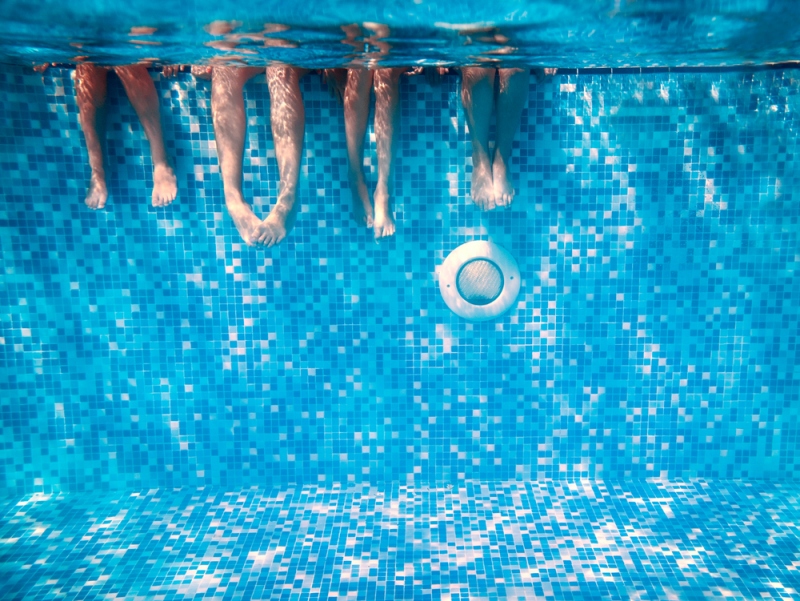Did you know that two-thirds of Americans are afraid of deep open water, and that 46% are even afraid of the deep end of the swimming pool? You might find yourself in this population, or perhaps someone you know has a fear of the water. Even people who can swim may find themselves feeling a bit nervous. Getting comfortable in the water is an achievable goal, though, and if you put your mind to it, you can make great progress.

Aquaphobia
The extreme fear of water is known as aquaphobia. (While hydrophobia might sound like the right term for the job, it actually refers to the fear of water that develops in later-stage rabies!) True aquaphobia may have its roots in traumatic early experiences with water, not growing up around water, or hearing too many warning about water as a child. People with aquaphobia often avoid water at all costs, have panic attacks near water, and frequently have poor hygiene. People with aquaphobia should seek professional psychiatric help–and this article is not going to solve their problems.
Tips for facing the water
If you just feel pretty nervous about the deep end of the swimming pool, the odds are that you don’t have aquaphobia–and that this article might prove helpful! Fortunately, there are some tried-and-true methods of getting comfortable in the water, many of which are backed up by psychologists.
Go slow:
You may have heard about kids who learned to swim by being tossed in the pool by their parents. This is not the only way to get used to the water, however. Some people just need to take it slow. This may mean sitting on the edge of the pool and sticking your feet in, splashing yourself a little, or wading around in the shallows until you feel comfortable. Once you get a little more comfortable, try going a little deeper, holding on to the edge of the pool.
Learn about it:
You might be a person who needs to start a swimming lesson outside the pool. Learn about the properties of water and buoyancy, and practice relaxation techniques that you can use before you get in the water (or on a boat, etc.). Knowing the hard facts about how our bodies interact with water can give you a solid base as you move into the unknown.
Take classes:
Perhaps you’ve never learned to swim, or perhaps you have learned to swim, but you’re still a little iffy about the water, or about anything aside from the shallow end of the pool. If you’re somewhat comfortable in water but just need that new boost, you might look into taking lessons of some sort. For instance, on your next summer getaway, why not sign up for surf lessons in Waikiki, HI? This way, you’ll be guided by an expert who will not only teach you the skills to surf (or swim, boat, or board), but will also have insight if you start to panic or if things go awry.
Have patience:
You might not get comfortable in the water immediately. You might never be comfortable enough to go swimming in the lake or the ocean. And that’s okay! Even if your progress is from out of the pool into the shallows, you’ve done something to be proud of. But who knows: over time, you may be calling your own swimming pool contractor in New Jersey, New Mexico, or New Hampshire to get a pool built!


